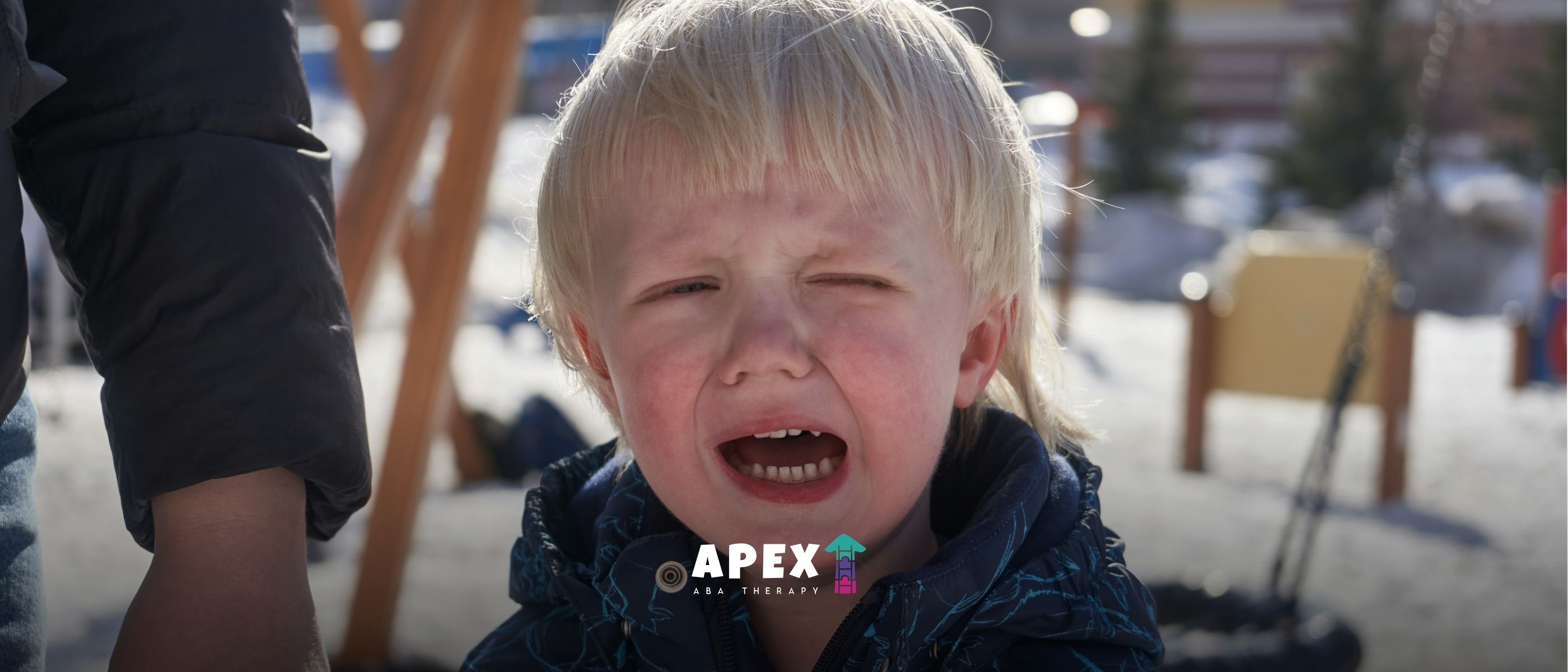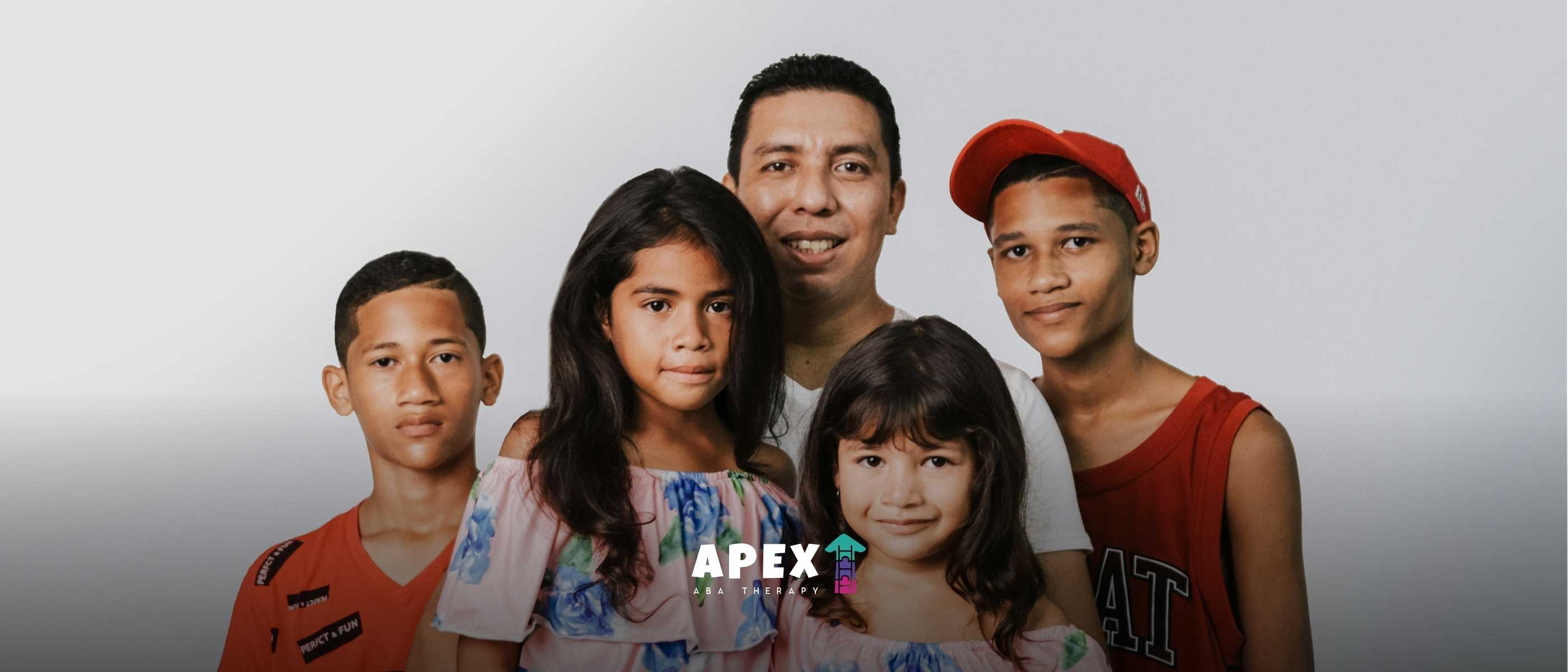Exploring Social Skills Training for Autism
Discover effective social skills training for autism. Unveiling strategies, tools, and positive outcomes for individuals with autism.

Exploring Social Skills Training for Autism
Understanding Social Skills Training

Social skills play a crucial role in our daily interactions and relationships. They enable us to understand and navigate social situations, express ourselves effectively, and build meaningful connections with others. However, individuals with autism may face unique challenges in developing and utilizing these skills.
Importance of Social Skills
For individuals with autism, acquiring social skills is essential for their overall well-being and quality of life. While they may have the desire to interact with others, they may struggle to engage appropriately or feel overwhelmed by the process. Some individuals with autism are aware of their social deficits and may avoid interactions despite wanting to connect with others [1].
The ability to navigate social situations successfully can enhance an individual's ability to make friends, communicate effectively, and participate in various social activities. Social skills also play a crucial role in academic and vocational settings, as they facilitate collaboration, teamwork, and problem-solving.
Challenges for Individuals with Autism
People with autism may find it harder to learn and develop social skills compared to their neurotypical peers. They may struggle with understanding social cues, interpreting nonverbal communication, and comprehending social expectations. This can make it challenging for them to navigate social interactions and establish meaningful connections.
It is important to note that social skill deficits in individuals with autism are not indicative of a lack of desire for social interaction. On the contrary, many individuals with autism deeply desire social connections but may face difficulties in acquiring and applying the necessary skills [2].
To address these challenges and support individuals with autism in developing their social skills, various strategies and training programs have been developed. These interventions aim to provide guidance, structure, and opportunities for individuals with autism to practice and enhance their social abilities.
By understanding the importance of social skills and the unique challenges faced by individuals with autism, we can explore effective strategies and tools for social skills training. In the following sections, we will delve into strategies for teaching social skills and the effective tools available to facilitate this process.
Strategies for Teaching Social Skills

When it comes to teaching social skills to individuals with autism, there are various strategies that can be effective in promoting social development and interaction. Two key strategies include professional guidance and structured programs for social skills.
Professional Guidance
Social skills development for individuals with autism often involves learning from professionals who specialize in supporting individuals with autism. Special education teachers, speech pathologists, and clinicians play a vital role in providing guidance and support in the acquisition and development of social skills. These professionals may lead social skills groups that combine direct instruction with real-life practice with peers, allowing individuals with autism to learn and generalize social skills in a safe and supportive environment.
Professional guidance can include individualized assessments to identify specific social skill deficits and develop personalized intervention plans. These professionals utilize evidence-based techniques, such as applied behavior analysis techniques, to target and address specific social skill deficits. By working closely with professionals, individuals with autism can receive tailored support to enhance their social interactions and communication skills.
Structured Programs for Social Skills
Structured programs designed specifically for social skills training can provide valuable opportunities for individuals with autism to learn and practice social interactions. These programs offer a structured and systematic approach to teaching social skills, often incorporating evidence-based practices and techniques. Some well-known programs include the Westmead Feelings Program and the Program for the Education and Enrichment of Relational Skills (PEERS®) [3].
Structured social skills programs typically consist of individual or group therapy sessions led by trained professionals. These sessions focus on teaching individuals with autism specific social skills through a combination of direct instruction, modeling, role-playing, and real-life practice. By providing a structured and supportive learning environment, these programs help individuals with autism develop and refine their social skills.
Through the use of structured programs, individuals with autism can learn important social skills such as initiating conversations, maintaining eye contact, taking turns, and understanding nonverbal cues. These programs often incorporate visual supports and social stories to enhance learning and comprehension. Visual supports and directories can help individuals with autism understand and navigate social situations by providing visual cues and step-by-step instructions.
By utilizing professional guidance and structured programs, individuals with autism can receive the necessary support and training to improve their social skills. These strategies aim to enhance social interactions, promote meaningful relationships, and foster greater social inclusion for individuals with autism.
Effective Tools for Social Skills Training

When it comes to social skills training for autism, using effective tools can greatly enhance the learning experience and promote skill development. Two valuable tools in this regard are personalized teaching stories and visual supports and directories.
Personalized Teaching Stories
Personalized teaching stories presented visually, such as through charts, booklets, or electronic devices, can be highly beneficial for individuals with autism. These stories help them understand what to expect in different situations and learn how to navigate them effectively.
By tailoring the stories to the individual's specific needs and challenges, personalized teaching stories provide guidance on how to interact in social situations, such as communicating with friends or family members. These stories can help individuals with autism develop communication skills, understand social cues, and engage in appropriate behaviors in various contexts.
Visual Supports and Directories
Visual supports play a crucial role in teaching social skills to individuals with autism. These supports, which can include pictures, words, checklists, or prompt cards, assist in learning new skills or remembering social skills already learned. Visual aids can be tailored to the individual's learning needs and help with activities such as conversations or playing games.
Visual supports provide a visual representation of the desired social skill or behavior, making it easier for individuals with autism to understand and remember. These aids serve as a visual reminder and can act as a reference point during social interactions. By using visual supports, individuals with autism can better comprehend and engage in social situations, fostering improved communication and interaction with others.
These tools, personalized teaching stories and visual supports and directories, contribute to the effectiveness of social skills training for individuals with autism. By utilizing these resources, individuals with autism can acquire and apply social skills in a way that is meaningful and tailored to their unique needs.
Enhancing Social Skills in the Community
For individuals with autism, enhancing social skills is a key aspect of their overall development. One effective way to achieve this is through active participation in the community. By engaging in community activities and programs, individuals with autism can have valuable opportunities to practice and improve their social skills. Let's explore the benefits of community participation and the programs available for social skills practice.
Benefits of Community Participation
Participating in community activities offers numerous benefits for individuals with autism. It provides them with opportunities to interact with a diverse range of people, fostering socialization and communication skills. Here are some key benefits of community participation:
- Social Interaction: Engaging in community events, clubs, or organizations allows individuals with autism to interact with peers and people of different ages, backgrounds, and abilities. These interactions promote social skills development, such as initiating conversations, taking turns, and demonstrating empathy.
- Generalization of Skills: By interacting with a variety of individuals in different social situations, individuals with autism can generalize their social skills. They learn to adapt their behaviors and communication styles to various contexts, which is essential for navigating real-world social interactions.
- Increased Confidence: Regular participation in community activities can boost self-esteem and confidence in individuals with autism. As they experience successful social interactions and receive positive feedback, their self-assurance grows, motivating them to further develop and refine their social skills.
- Community Integration: Involvement in community activities helps individuals with autism become active members of their community. It promotes inclusivity, acceptance, and understanding among community members, reducing the stigma often associated with autism.
Programs for Social Skills Practice
To support the development of social skills in individuals with autism, various programs specifically designed for social skills training are available. These programs offer structured environments and evidence-based techniques to facilitate social learning. Here are some commonly used programs:
- Social Skills Training Programs: These programs utilize behavioral and social learning principles to teach social skills. Techniques such as behavioral goal setting, prompting, modeling, shaping, and positive reinforcement are employed to facilitate skill development. Social skills training programs are often conducted in group settings to provide opportunities for practice, peer interaction, and feedback.
- Personalized Teaching Stories: Personalized teaching stories, also known as social stories, are visual tools that help individuals with autism understand and navigate social situations. These stories use simple language and visual cues to explain social expectations and appropriate behaviors. Personalized teaching stories can be customized to address specific social challenges faced by individuals with autism.
- Visual Supports and Directories: Visual supports, such as visual schedules, cue cards, and visual prompts, are effective tools for individuals with autism to understand and remember social rules and expectations. They provide visual cues and reminders, making social interactions more predictable and manageable. Directories listing community programs and resources focused on social skills training can also assist individuals and their families in finding suitable opportunities for social skills practice.
By actively participating in community activities and taking advantage of social skills programs, individuals with autism can enhance their social interactions and communication abilities. These experiences contribute to their overall growth, independence, and integration into the wider community.
Social Skills Training for Children with Autism
For children with autism, acquiring and developing social skills can be a significant challenge. However, with the right strategies and interventions, they can enhance their social abilities and improve their interactions with others. Two effective approaches for social skills training in children with autism are play-based learning and structured group training programs.
Play-Based Learning
Play is a powerful tool that can help children, including those with autism, learn and develop social skills. Engaging in play activities with peers and adults provides opportunities for practicing essential social behaviors, such as turn-taking, sharing, following rules, and coping with winning and losing. Through play, children with autism can learn and practice various communication and social interaction skills in a natural and enjoyable context.
Play-based learning can take place in various settings, including homes, schools, and therapeutic environments. Structured play activities, guided by professionals and caregivers, can help children with autism understand social rules, develop empathy, improve problem-solving skills, and enhance their ability to engage in reciprocal social interactions. It is important to tailor the play activities to the child's individual needs, interests, and developmental level to maximize engagement and learning.
Structured Group Training Programs
Structured group training programs provide children with autism the opportunity to develop social skills in a supportive and structured environment. These programs, such as the Westmead Feelings Program and the Program for the Education and Enrichment of Relational Skills (PEERS®), offer individual or group therapy sessions to teach specific social skills.
The Westmead Feelings Program focuses on helping children recognize and understand their own emotions and the emotions of others. It includes activities that facilitate emotional expression and empathy, promoting social understanding and connection. The Program for the Education and Enrichment of Relational Skills (PEERS®) is a structured program that targets social skills development in adolescents and young adults with autism. It covers various topics, including conversational skills, making friends, and handling conflicts. PEERS® has demonstrated effectiveness in improving social skills knowledge, social interaction, and friendship quality for individuals with autism [4].
Structured group training programs provide a systematic and evidence-based approach to teaching social skills. They often incorporate role-playing, modeling, and feedback to help children with autism understand and practice appropriate social behaviors. These programs offer a supportive environment where children can learn from their peers, share experiences, and receive guidance from trained professionals.
By implementing play-based learning and structured group training programs, children with autism can develop and strengthen their social skills. These approaches provide targeted interventions that address the unique challenges faced by individuals on the autism spectrum, fostering meaningful social interactions and enhancing their overall quality of life.
Impact of Social Skills Training
Social skills training (SST) has a significant impact on individuals with autism, helping them develop and improve their social interactions and communication abilities. By employing evidence-based approaches, positive outcomes can be achieved through these training programs.
Positive Outcomes
Research and studies have demonstrated the positive effects of social skills training for individuals with autism. These programs aim to address deficits in social skills that can result in impaired social functioning. By utilizing behavioral and social learning principles, such as goal setting, prompting, modeling, and shaping, combined with positive reinforcement and overlearning, social skills training helps individuals acquire and apply new skills.
According to a study conducted in India, a social skills group training program for individuals with severe mental illness, including schizophrenia and bipolar affective disorder, showed significant improvements in social skills as measured by the Vellore Assessment of Social Performance (VASP) at different time points, including baseline, midterm assessment, posttest, and follow-up [5]. The study found a negative correlation between psychopathology and social performance, indicating that as psychopathology decreased, social skills improved. Participants in the training program experienced enhancements across all subdomains of the VASP, including nonverbal social skills, verbal social skills, receptive social competence skills, processing social competence skills, and expressive social competence skills.
Evidence-Based Approaches
The effectiveness of social skills training is supported by evidence from controlled studies conducted across continents. These studies have demonstrated that structured group processes and supervised practice in real-life situations contribute to enhancing cognitive processes underlying social competence. By providing a context-specific, peer- and family-supported approach, the feasibility of implementing social skills training as part of routine clinical care has been emphasized [5].
Implementing evidence-based approaches in social skills training programs ensures that individuals with autism receive the most effective interventions. These approaches are grounded in research and have been shown to yield positive results in improving social interaction, communication skills, and overall quality of life for individuals with autism.
By focusing on evidence-based strategies, such as behavioral goal setting, prompting, modeling, and reinforcement, social skills training programs can effectively address the challenges individuals with autism face in social situations. The positive outcomes observed in these programs highlight the potential for individuals with autism to develop and enhance their social skills, leading to improved social functioning and overall well-being.
For more interesting reads, check out the following articles on:
- autism communication skills
- early intervention for autism
- autism behavior management
- autism spectrum disorder support
- autism parental guidance
- autism school support
- autism sensory processing
- functional behavior assessment (fba)
References
- [1]: https://www.autismspeaks.org/tool-kit-excerpt/autism-and-social-skills-development
- [2]: https://www.autismspeaks.org/social-skills-and-autism
- [3]: https://raisingchildren.net.au/autism/communicating-relationships/connecting/social-skills-for-children-with-asd
- [4]: https://link.springer.com/article/10.1007/s40489-015-0066-5
- [5]: https://www.ncbi.nlm.nih.gov/pmc/articles/PMC9120981/
Frequently Asked Questions
.jpg)
Autism And Bed Wetting: Unlocking Solutions
Explore the connection between autism and bedwetting and find practical insights and solutions for parents and caregivers. Discover how understanding and support can make a difference in managing this common challenge for children and individuals on the autism spectrum.

Proven Examples of Smart Goals for Students with Autism
Unlock the potential of students with autism through proven examples of SMART goals. Set them up for success!
.jpg)
What is the Sensory Processing Disorder ICD-10 Code?
If you or someone you know has been diagnosed with Sensory Processing Disorder (SPD), you may have heard of the ICD-10 code. In this article, we'll explain what the SPD ICD-10 code is, what it means, and why it's important.

Understanding Vestibular Stimming in Autism
Demystifying vestibular stimming in autism: Understand the impact, strategies, and support for individuals. Uncover the power of self-regulation through stimming.

Do Amish Kids Get Autism?
Explore the prevalence of autism in Amish children and uncover the factors that may contribute to this phenomenon. Delve into the unique characteristics of Amish communities and their impact on autism rates.

Breaking Barriers: Free Sensory Toys for Autism That Make a Difference
Discover life-changing free sensory toys for autism! Unlock the power of sensory play for children with autism.

Famous People Thriving with Autism or Aspergers Syndrome
Discover the extraordinary journeys of famous people thriving with autism and Asperger's syndrome. Unveil the inspiring stories of icons who break stereotypes.

IEP Goals for Autism: Ultimate Guide
Unlock the potential: Constructing meaningful IEP goals for autism to support your child's growth and development. Discover strategies and examples!

Young Celebrities with Autism
Discover inspiring young celebrities with autism and their journeys in entertainment and advocacy.
.jpg)
Autism Hand Posturing: Causes, Types, and Management
Autism hand posturing refers to repetitive and often purposeless movements or postures of the hands and fingers seen in individuals with autism. These movements range from simple hand flapping to more complex finger twisting and tapping.

Distinguishing ADHD vs Autism Stimming
ADHD stimming vs autism stimming: Discover the motivations and characteristics behind these behaviors in individuals.

Addressing Rigid Thinking in Autism
Unlocking flexibility in autism! Discover strategies, therapy, and tools to address rigid thinking for a brighter future.

DSM 6 Release Date Revealed
Unlock the future with DSM-6! Discover the release date and anticipated changes in the mental health landscape.

Why Do Autistic People Rock?
Uncover insights with empathy, exploring the diverse ways rocking serves as a coping mechanism and sensory regulation for individuals on the autism spectrum. Join us in celebrating the beauty of neurodiversity, fostering understanding and appreciation for this distinctive aspect of autistic experience.

Signs Your Toddler Is Not Autistic
Discover reassuring signs that your toddler may not be autistic in this human-centered guide. Explore the joy of your child's unique developmental journey, celebrating their social engagement and communication skills.
.jpg)
Facial Features & Physical Characteristics Of Autism
Some researchers believe that these physical characteristics are related to the underlying neurological differences in individuals with autism.

The Three Main Causes of Autism: Exploring Genetics, Environment, and Brain Differences
Autism is influenced by genetics, environmental factors, and brain differences. Learn how these three causes contribute to the development of the condition.

What are the Common Behaviors of Autism?
Autism behaviors can vary widely. Learn about the most common traits, from social difficulties to sensory sensitivities, and how ABA therapy can support progress.

What Age is Too Late for ABA Therapy?
It’s never too late to start ABA therapy. Discover how children, teens, and adults can still make meaningful progress with personalized ABA support.

Is In-Home ABA the Right Fit for Your Child? Here’s What You Need to Know
In-home ABA therapy offers a tailored approach to support your child’s development. Learn how it can improve key skills like communication, social interaction, and more.

How Families Can Make ABA Therapy a Positive and Successful Experience
Learn how families can ensure ABA therapy is a positive, successful experience. Discover tips for involvement, consistency, and support to make ABA effective.

Can a Child Have Autism and Still Talk Normally?
Can a Child Have Autism and Still Talk Normally?

What Are the Red Flags for Autism in a 2-Year-Old?
Autism Red Flags in 2-Year-Old Children | Apex ABA

Is Autism a Lifelong Condition?
Is Autism a Lifelong Condition? Understanding The Journey

Best Age to Start ABA Therapy & What Parents Should Know
Best Age to Begin ABA Therapy for Children | Apex ABA

What’s the Difference Between High-Functioning Autism and Asperger’s?
Difference Between High-Functioning Autism and Asperger’s

ABA Therapy Enhancing Social Skills: A Key to Improved Communication and Interaction for Children with Autism
How ABA Therapy Helps Children Build Social Skills

Misconceptions About ABA Therapy: Clearing Up the Myths
Common Misconceptions About ABA Therapy | Apex ABA

What Does It Mean to Be “On the Spectrum”?
What Does It Mean to Be on the Autism Spectrum? | Apex ABA

Understanding the Power of Functional Behavior Assessment ABA
Effective ABA Techniques for Behavioral Intervention

Discover How ABA Helps ADHD in Your Child’s Life
How ABA Therapy Helps Children with ADHD | Apex ABA

Life-Changing ABA Therapy Case Studies You Need to Know
Real Success Stories from ABA Therapy Journeys | Apex ABA

Can Children “Outgrow” Autism?
Can Children Outgrow Autism? Understanding the Facts

Is Autism a Mental Illness or a Developmental Disorder?
Mental Illness or Developmental Disorder Explained

Is Autism More Common in Boys Than Girls?
Autism in Boys vs Girls: What the Research Reveals

What is the Difference Between Autism and Sensory Processing Disorder?
Autism vs Sensory Processing Disorder Differences | Apex ABA

What's the Difference Between Autism and Speech Delay?
Autism vs Speech Delay & Key Differences Explained | Apex

ABA Therapy in North Carolina: A Complete Guide for Families
Learn everything about ABA therapy in North Carolina, including services, costs, insurance coverage, and how to choose the best ABA provider in North Carolina.

ABA Therapy vs Preschool: Making the Right Choice Explained
Learn the key differences between ABA therapy and preschool to help you choose the best option for supporting your child’s early learning and development.

Which Personality Type Is Most Likely to Be Autistic?
Which Personality Type Is Most Likely to Be Autistic? | Apex ABA

Why Consistency Matters: What Happens If ABA Therapy Ends Prematurely
What Happens If ABA Therapy Is Stopped Too Early? | Apex ABA

How Can You Gain an Autistic Person’s Attention? Tips for Meaningful Connection
How Can You Gain an Autistic Person’s Attention?

Sensory Sensitivity and Sixth Sense: What Autism Research Shows
Do Autistic People Have Sixth Sense? | Apex ABA

What Happens If Autism Is Left Untreated?
Can Autism Get Worse If Untreated? | Apex ABA

What Not To Do With An Autistic Child: Avoid These 10 Mistakes
What Not To Do With An Autistic Child? | Apex ABA

Coping with Regressive Autism: Tips for Parents
What is Regressive Autism? | Apex ABA

Do Autistic Kids Live with Parents Forever? Here’s the Reality
Do autistic kids live with parents forever? Discover the facts about independence and living arrangements in autism with expert-backed insights.

Red Flags in ABA Therapy: What Parents Must Watch For
What are the red flags in ABA therapy? Learn to identify warning signs for safe, effective autism treatment in this blog.

Can You Go from Level 3 Autism to Level 1? Is It Possible?
Can you go from level 3 autism to level 1? Learn about progress, therapy, and support options with expert help from Apex ABA.

Autism vs Introversion: How to Tell the Difference
Is it autism or just introversion? Learn the key differences and signs with expert insights from Apex ABA.

ABA for Managing Transitions: Tips to Ease Change for Kids
Learn how ABA for managing transitions helps children with autism handle change smoothly.

Understanding the 7 Dimensions of ABA for Better Outcomes
Discover the 7 Dimensions of ABA and how they can lead to better outcomes.

5 Unique Autistic Love Languages You Should Know About
Discover the 5 unique autistic love languages that can enhance your relationships.

Transforming Futures: Improving Lives of Kids with Autism
Discover how innovative strategies are focused on improving lives of kids with autism.

ABA Therapy Techniques for Addressing Repetitive Behaviors in Autism
Harnessing ABA Strategies to Tackle Repetitive Behaviors in Autism

The Role of ABA Therapy in Enhancing Communication Skills
Transforming Communication for Children with Autism Through ABA Therapy

How ABA Therapy Supports Effective Communication in Nonverbal Children
Unlocking Speech Through ABA: Transformative Paths for Nonverbal Children

How to Help Your Child Transfer Skills Learned in ABA Therapy to Real Life
Unlocking Real-World Success for Children in ABA Therapy

How ABA Therapy Helps Children Develop Better Organizational Skills
Empowering Children with ABA Therapy for Enhanced Organizational Skills

The Importance of Creating a Structured Routine in ABA Therapy
How Structured Routines Transform ABA Therapy for Autism

The Role of ABA Therapy in Developing Conflict Resolution Skills
How ABA Therapy Transforms Conflict Resolution Competence

The Importance of Generalization in ABA Therapy for Autism
Unraveling the Role of Generalization in Enhancing ABA Therapy Outcomes

Why ABA Therapy is Crucial for Parents of Children with Autism
The Transformative Impact of ABA Therapy on Families with Autistic Children

How to Involve Parents in the ABA Therapy Process
Maximize Parent Engagement in ABA Therapy for Better Outcomes

What are the Core Principles of ABA Therapy?
Exploring the Cornerstones of Applied Behavior Analysis

Why Communication is Key in ABA Therapy for Autism
The Crucial Role of Communication in ABA Therapy for Autism

Why ABA Therapy Works for Children with Autism Regardless of Severity
Effective ABA Interventions for All Levels of Autism

Why It’s Important to Maintain a Balanced Approach to ABA Therapy
Balancing Effectiveness and Ethics in ABA Therapy

The Role of ABA Therapy in Developing Adaptive Behavior Skills
Exploring How ABA Therapy Transforms Lives

The Benefits of Combining ABA Therapy with Speech Therapy
Maximizing Development with Integrated Therapy Approaches

What to Expect During an ABA Therapy Session
Demystifying ABA Therapy Sessions: A Comprehensive Overview

How ABA Therapy Enhances Cognitive Functioning in Children with Autism
Exploring the Influence of Applied Behavior Analysis on Autism Cognition

How ABA Therapy Helps Children with Autism with Transitions Between Activities
Easing Transitions for Children with Autism: The Role of ABA Therapy

How to Foster Cooperation Between Parents and Therapists in ABA Therapy
Building Effective Partnerships in ABA Therapy

The Role of Positive Reinforcement in ABA Therapy
Exploring the Impact of Positive Reinforcement in Modern ABA Therapy

Why ABA Therapy is Effective for Children of All Ages
Understanding the Reach and Impact of ABA Therapy Across Age Groups

How to Support Your Child’s Emotional Growth with ABA Therapy
Harnessing ABA Therapy for Enhancing Emotional Development in Children with Autism

The Role of ABA Therapy in Enhancing Peer Relationships for Children with Autism
Harnessing ABA Therapy to Boost Social Connections Among Autistic Children

How to Overcome Common Challenges in ABA Therapy
Navigating Hurdles in ABA Therapy: Strategies and Solutions

How to Manage Behavioral Expectations with ABA Therapy
Understanding Applied Behavior Analysis in Behavioral Management

How ABA Therapy Promotes Emotional Regulation in Children with Autism
Unlocking Emotional Balance: ABA Therapy's Role in Autism

How ABA Therapy Improves Social Skills in Children with Autism
Harnessing ABA Therapy to Enhance Social Competency in Autistic Children

The Role of ABA Therapy in Classroom Success for Children with Autism
Harnessing ABA for Academic and Social Growth in Autism

The Importance of Evaluating and Revising ABA Therapy Goals Regularly
Regular Evaluations: The Cornerstone of ABA Therapy Success

How to Choose the Right ABA Therapy Program for Your Child
Finding the Perfect ABA Therapy Fit for Your Child

The Role of Behavior Analysts in Implementing ABA Therapy
Understanding the Vital Contributions of Behavior Analysts in ABA Therapy

The Role of RBTs (Registered Behavior Technicians) in ABA Therapy
A Closer Look at the Essential Work of RBTs in ABA Therapy

What Makes ABA Therapy Effective for Different Learning Styles?
Unraveling the Flexibility and Effectiveness of ABA Therapy

Understanding the Importance of Data Collection in ABA Therapy
The Role of Data in Shaping Effective ABA Therapy

How ABA Therapy Helps with Toilet Training in Children with Autism
Unlocking Independence: ABA's Role in Autism Toilet Training

The Importance of Encouraging Natural Play in ABA Therapy
Revolutionizing ABA Therapy with Natural Play

How to Make the Most of ABA Therapy at Home
Enhancing ABA Therapy Practices Within Your Home

How to Make ABA Therapy Fun and Engaging for Children with Autism
Transforming ABA Therapy into a Fun Learning Journey

The Role of ABA Therapy in Addressing Verbal and Nonverbal Communication in Autism
Enhancing Communication Skills in Autism Through ABA Therapy

Understanding the Role of Family in ABA Therapy for Autism
The Crucial Impact of Family Engagement in Autism Therapy

How to Handle Setbacks and Challenges in ABA Therapy
Navigating Difficulties and Setbacks in ABA Therapy for Children

How ABA Therapy Can Help Children Build Stronger Relationships with Peers
Unpacking the Influence of ABA Therapy on Peer Relationships in Children

Understanding the Concept of Shaping in ABA Therapy
Demystifying Shaping Techniques in Applied Behavior Analysis

How ABA Therapy Enhances Independent Living Skills in Autism
Unlocking Independence: The Role of ABA Therapy in Autism
.jpg)
90+ Reading Statistics, Facts and Demographics
In this article, we will dive into 60 reading statistics that shed light on the importance of reading and its impact on different aspects of life.



